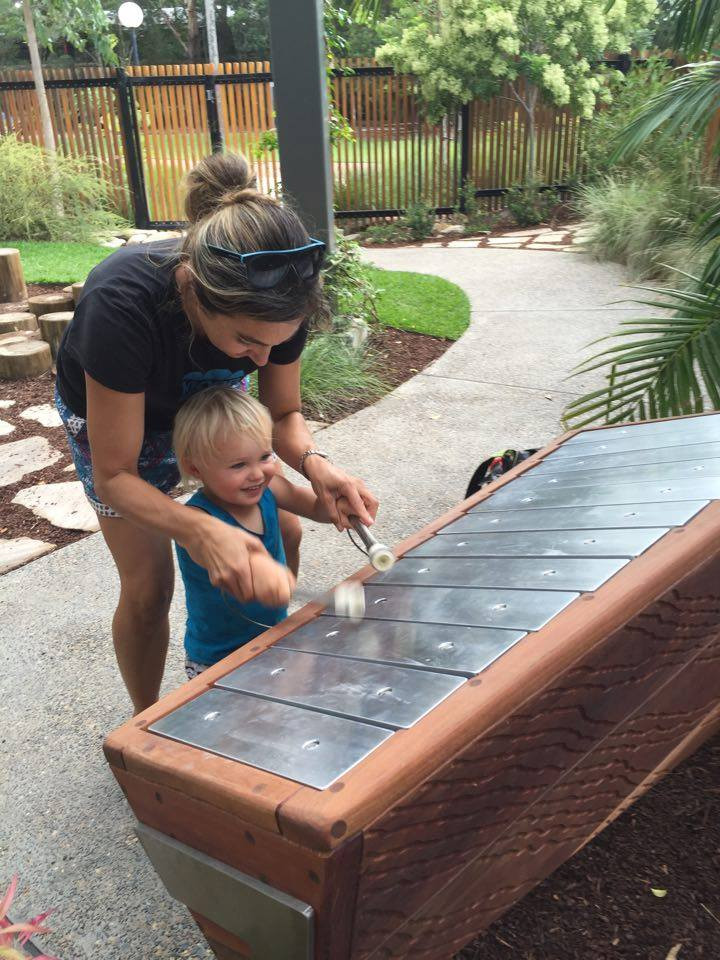Music making at home to support children's development
Most of us like music! Children, like adults, enjoy and respond to music. As well as being an enjoyable part of family life, engaging in shared informal music making with young children appears to help support their development, including speech development.
Researchers have found young babies prefer singing to speech. Indeed, singing appears to calm babies for longer than speech. Researchers think that singing to babies serves an important purpose because it helps prepare babies for language by encouraging focused listening and drawing attention to the features of language such as rhythm, long vowel sounds and the shapes of phrases and sentences.
Music remains engaging for young children and many children’s songs and rhymes highlight the rhythms of language and features like the beginnings and endings of syllables, rhyme, and alliteration (e.g. Bradley bought a big blue book). Dance and movement, whether independently, or when a carer moves while carrying a child, helps develop children’s sense of beat and rhythm. It is thought that honing this sense of timing also supports language development.
So, making music at home can be a great thing to do! Here are some tips about making music with your child at home.
- Music making together is relational and enjoyable. When we sing simple songs or rhymes that use actions, we make eye contact, smile and use other forms of non-verbal communication with children. Babies and young children respond with their facial expressions, laughing, making vocal sounds or attempting words. Some researchers call these communicative interactions “serve and return”. Through musical serve and return, young children learn how we engage with each other socially and how conversations work. These experiences also strengthen our mutual bonds, which helps young children feel safe and secure.
- Where you can, try to engage in authentic music making with your child. This involves not being over-reliant on using recordings and helps children see that we are all capable of making our own music. Our music may be simple and not necessarily perfect but it’s still valid and worthwhile.
- Share your voice. You don’t need to be a professional singer to sing with your child. Singing, especially if your child can see your face, helps them see how you form words. Clearly articulating the consonants in the words of songs (e.g. the ‘t’ in “little star”) also helps children hear the beginnings and endings of syllables.
- Sing while you play ‘musical’ instruments. We generally have many items in our homes that can be used as musical instruments. Take advantage of pots, pans, big cardboard boxes, plastic or metal buckets. This type of play provides engaging opportunities for children to experiment with producing different types of musical sounds.
- Repetition is great. If your child asks you to repeat favourite songs this can help their learning so that these songs can be stored in long term memory.
- Develop your unique family ‘music bank’. It may include songs or pieces of music that hold special significance for your family, expresses cultural identity, or are simply much-loved favourites. This contributes to children’s sense of identity and belonging to their family, cultural and social groups.
- Your family might have particular songs or pieces of music that can also be used to shape and reinforce the rhythms and routines of our day. There may be music that signals energetic play or time to get ready for bedtime or a nap. By doing this we create a home environment that feels secure and predictable for children.
- Take care to protect children’s hearing. Children’s hearing is sensitive and can be damaged if we play a lot of loud music near them, particularly in confined spaces.
Music making at home need not cost money yet it can enrich our family lives. Through informal, spontaneous and regular shared music experiences we can strengthen our relationships, as well as provide an important starting point for children’s communication and later, their speech. We can also help strengthen children’s sense of wellbeing and security. Music really can be a win-win in family life!



